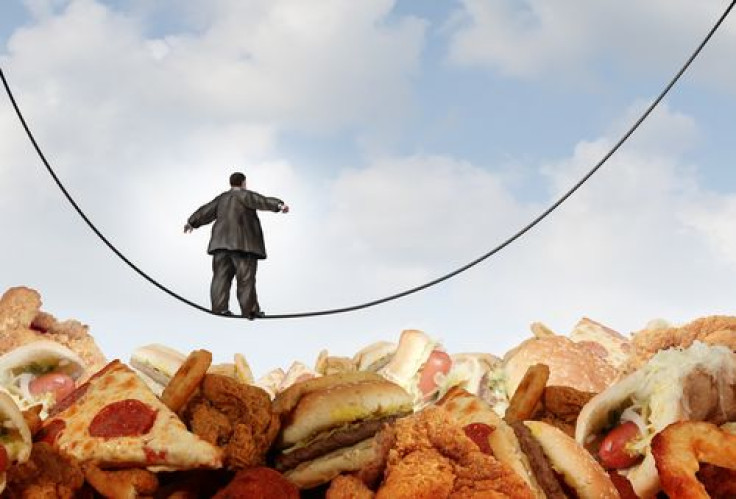Food Addiction Could Be Triggered By PTSD; Added Risk Factor For Obesity

Eating away your feelings is definitely not unheard of. From the stereotypically post-breakup pint of ice cream, to the big bowl of macaroni and cheese with a side of fries for comfort food after a long day at work, food seems to act as a kind of therapy. This seemingly harmless pattern can develop into a risk factor for obesity, and researchers have discovered post-traumatic stress disorder (PTSD) can actually fuel a food addiction so severe it threatens the sanctity of your health.
Researchers from the University of Minnesota found those with symptoms of PTSD were at an increased risk for food addiction, the earlier they developed symptoms the worse off they were. The study was published in JAMA Psychiatry and revealed the dangerous thought provocations of eating when under an abnormally high level of stress. PTSD is a life-altering mental condition triggered by a terrifying or tumultuous event in one’s life. Whether it’s a death in the family, exposure to war, child abuse or neglect, sexual or physical attack, natural disaster, car accident, or medical condition, if it has traumatized or been a turning point in a person’s life they become at risk of developing PTSD, according to Mayo Clinic.
"Our findings are relevant to ongoing questions regarding the mechanisms behind observed associations between PTSD and obesity, and they provide support for hypotheses suggesting that association between PTSD and obesity might partly originate in maladaptive coping and use of food to blunt trauma-associated distress,” the authors wrote. “If replicated longitudinally, these results may have implications for both the etiology of obesity and for treatment of individuals with PTSD."
The authors studied 49,408 women from the Nurses’ Health Study II in order to extract data on their participants’ trauma exposure, PTSD symptoms, and food addition behavior. If a participant exhibited three or more symptoms including, eating when no longer hungry four or more times a week, worrying about cutting down the amount of food they eat four or more times a week, feeling they need to increase the amount of food they eat to reduce stress, or having physical withdrawal symptoms after cutting down certain foods two or more times a week.
Out of the group, 81 percent reported experiencing one traumatic event in their life and 39 percent of them reported at least one to three symptoms of PTSD starting at the average age of 30. The earlier the symptoms, the more severe their food addition had become over the years. Many of the traumas stemmed from physical abuse from childhood, however not all of them had PTSD but many suffered from food addiction.
In order to break free from the cycle of emotional eating, the PTSD sufferer needs to learn how to distinguish between emotional eating and general hunger. Emotion-focused coping needs to be redirected into exercise or a hobby. Behavior therapy can go a long way, especially once the emotional eater realizes comforting their hurt feelings with chocolate cake will not actually solve the problem, but instead possibly create a new one by forming a habit. With 78.6 million American adults obese, according to the Centers for Disease Control and Prevention, a person’s relationship with food needs to be dominated by their need to sustain themselves nutritiously instead of desperately trying to fill an empty void inside of their psyche when they really need to be seeking professional therapy counseling.
Source: DePoint M and Mason S. JAMA Psychiatry. 2014.



























